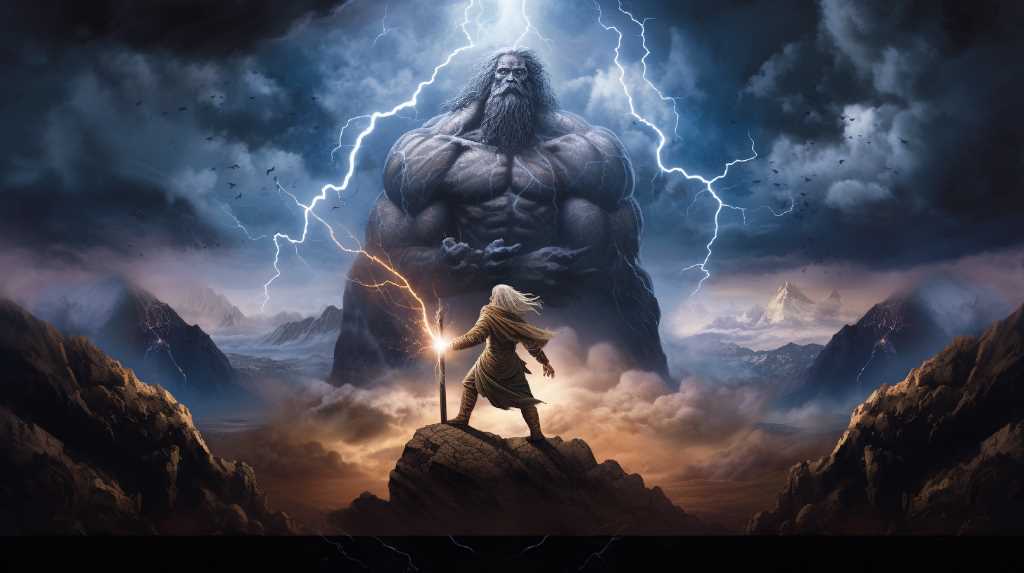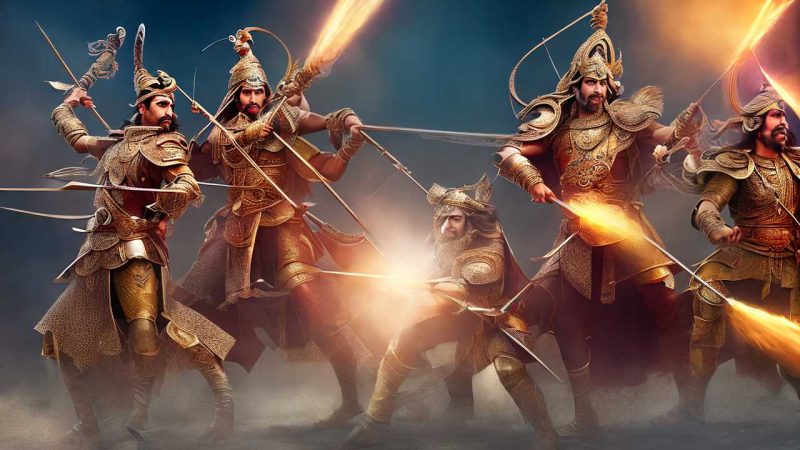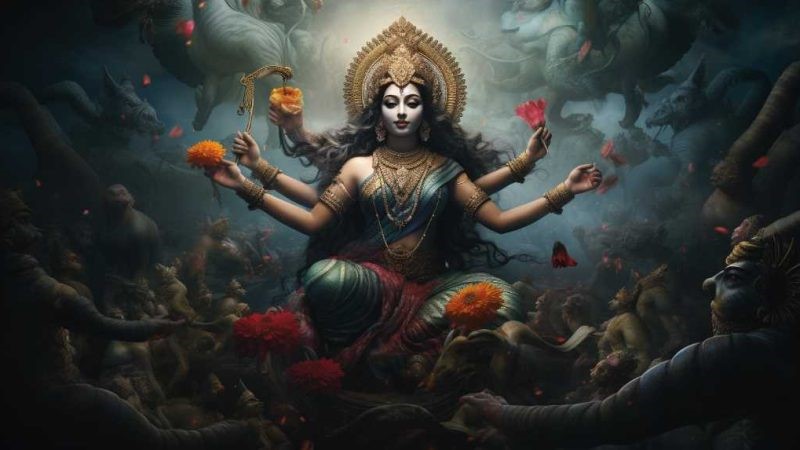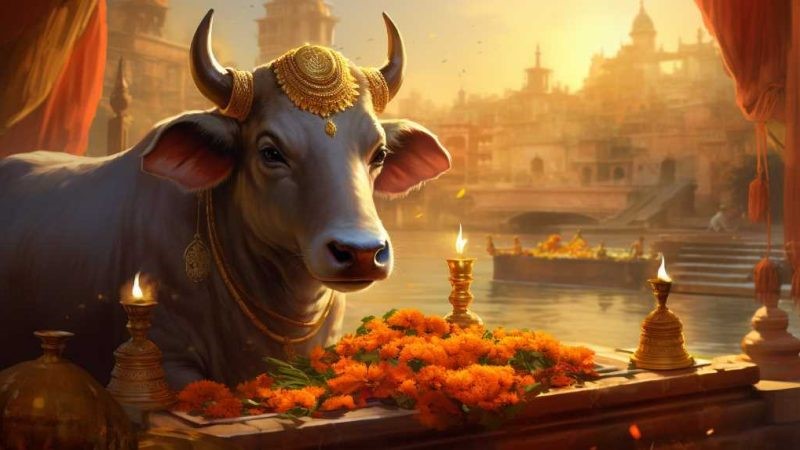Mythological Parallels Greek and Hindu Gods in Comparative Mythology

In the study of myths from different cultures, we see interesting connections between the gods of Greek and Hindu mythology. These two ancient cultures have a lot in common when it comes to their gods, even though they developed far apart from each other. For example, both cultures have a god of the sky who uses a thunderbolt to show power: Zeus in Greek mythology and Indra in Hindu mythology.
Researchers are trying to figure out if these similarities happened because cultures often develop the same ideas independently, or if these cultures share a common ancestor. As we look more into the stories and beliefs of these gods, we may find that Greek and Hindu mythologies have a lot more in common than we think. This could mean that there’s a hidden, shared knowledge in their stories and gods that we have yet to discover.
This is important because understanding these connections can help us learn about how different cultures see the world and how they may have influenced each other. It’s like putting together a big puzzle of human history. As we piece together more information, we can get a clearer picture of how these ancient stories and gods might be linked.
Zeus and Indra: Thunderous Sovereigns
Zeus from Greek myths and Indra from Hindu stories are both powerful gods. They control thunder and lightning, showing they are strong and in charge. When we compare Zeus and Indra, we can see that they are a lot alike. They both lead other gods, and they are known as the ones who keep everything in order. They fight off chaos and use thunderbolts to show their power and keep things balanced.
These stories about Zeus and Indra may come from old stories that many European cultures shared, or maybe different cultures came up with similar ideas on their own. They both thought the sky was very important and saw storms as a way for the gods to show their will.
In simple terms, Zeus and Indra are like the big bosses of their mythic worlds. They use thunder as their weapon to keep the peace and show who’s boss. These stories are important because they tell us about what people from the past believed and valued, like strong leaders and the power of nature.
Athena and Saraswati: Wisdom Embodied
Just like Zeus and Indra are known for their powerful control over thunder, Athena and Saraswati are famous for their deep wisdom in Greek and Hindu stories.
Athena was born from Zeus’s head and is known for her smart thinking, good strategies in war, and her skills in crafts. She shows how important it is to think well and to be good at fighting.
Saraswati, who is married to Brahma, is in charge of knowing things, the arts, and education. The way she is shown in pictures makes you think of peace and concentrating on studying.
Looking closely, we can see that Athena and Saraswati show us that being wise is not just a good quality to have but also something that actually helps society get better. People from different cultures look up to them as the best examples of understanding and the ability to come up with new ideas. This shows how much people all over the world respect the amazing things our minds can do.
In simpler terms, both of these goddesses teach us that wisdom is really important for our development and achievements. For example, Athena’s strategies in mythical battles show how good thinking leads to success. Saraswati’s focus on learning encourages people to study and create art, which has long-lasting effects on cultures around the world.
These stories of Athena and Saraswati are still important today because they inspire us to value knowledge and use it to make the world a better place.
The Underworld: Hades and Yama
When we look at the old stories from Greece and India, it’s really interesting to see how similar Hades and Yama are. Hades is in charge of the Greek underworld, and Yama is the Hindu god who looks after people who have died. They both judge the dead.
The place Hades rules over sorts souls based on what they did when they were alive, which is just like Yama’s Naraka, where souls go through different kinds of punishment or cleaning, depending on what they need. This shows that both Greek and Hindu cultures see death as something that happens to everyone, no matter who they are.
Aphrodite and Lakshmi: Divine Femininity
In the world of mythology, the goddesses Aphrodite from Greek mythology and Lakshmi from Hindu tradition stand for the idea of divine femininity. Aphrodite is known for her beauty and love. She came to life from sea foam and has a strong influence on both gods and humans.
Lakshmi, on the other hand, is Vishnu’s partner and is known for bringing good luck and spiritual richness. She helps keep everything in balance with her kindness.
When we look at these goddesses from different cultures together, we can see common ideas about what it means to be a woman that go beyond any one culture. People pray to both Aphrodite and Lakshmi because they are known for giving good things to others and for being the image of beauty and elegance. But their stories are about more than just being rich or beautiful. They show us that love and caring are valued by people everywhere and have always been a big part of what we think of as womanhood.
For example, Aphrodite is often shown in art as the ultimate beauty, and her stories are full of romance and desire. She is someone who makes others fall in love.
Lakshmi is often pictured with gold and lotus flowers, symbols of the wealth and purity she brings into people’s lives. She is a goddess who people turn to when they want success or when they need guidance on their spiritual path.
Both goddesses show the power of femininity and remind us that caring and nurturing are as important as strength and power in myths from long ago.
Heroic Comparisons: Heracles and Hanuman
In the world of mythic stories, Heracles from Greek tales and Hanuman from Indian stories are both seen as classic heroes. They’re famous for their incredible strength and amazing adventures. Heracles, who is half-god, fights against scary monsters and does really tough jobs to make up for past mistakes. Hanuman is a powerful monkey-like hero who helps a lot in the story of the Ramayana, especially when fighting the bad guy, Ravana.
When we compare these two heroes from different cultures, we see that they both follow orders from higher powers: Heracles does what the Greek gods want, and Hanuman is a loyal follower of Lord Rama. Their stories are important because they show how people value heroes who are dedicated, willing to give up things for others, and who fight for what’s right.
Heracles and Hanuman are inspiring because they do things that are hard to believe, and they always try to do the right thing. Their stories are told over and over again because they show us how heroes can overcome tough challenges. This is why people from all around the world love these tales of bravery and strength.
Conclusion
Comparing myths from different cultures, like Greek and Indian, shows us that people from all over the world have similar stories about their gods. This helps us see that all humans share certain ideas and experiences, no matter where they’re from.
When we look at gods like Zeus from Greece and Indra from India, we can see that both are powerful rulers. Similarly, Athena and Saraswati are both seen as wise goddesses. These stories from long ago tell us about leadership, knowledge, and spiritual beliefs.
By looking closely at these stories, we can better understand how people from Greece and India saw the world. Even though these cultures have their own special ways of telling stories, studying them together shows us how connected we all are through our myths. This makes our knowledge of Greek and Indian myths richer and more interesting.
We can learn a lot by thinking about why these myths are important. They aren’t just old tales; they help us understand how people from the past tried to make sense of life. Myths can also teach us about the values and beliefs of ancient societies.
So, next time you hear a story about a Greek or Indian god, remember that it’s more than just a story. It’s a way to connect with people from long ago and see the world through their eyes.






